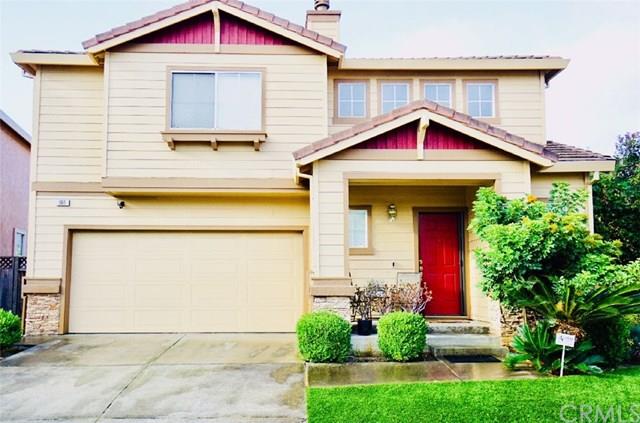For this home I sold in San Jose for $1,150,000, I was the agent for the buyer, who was referred to me by someone who told me that they have been on this here database for 10 years and has read these stories I write over the years and thought I would be a good match for his colleague! How cool is that?! I guess telling these stories really does work…lol. 🙂
I have been working with the buyer since March and it’s been a real challenge to find the right home at the right price. So often, when he would find a home he liked and wanted to make an offer, the home would have a lot of competition and would be selling for a higher price than he was willing to pay. So, when we would find out that the home would be selling for a higher price than he would pay, we would just move on. And, there were a few cases in which we would get the disclosure package and there would be a lot of work that was unexpected, so again, we would move on.
As many know, the market has slowed down quite a bit since March, which was a good sign for the buyer, and we hoped that it would slow down enough to where the next time there was a home he wanted to buy, we would have the opportunity to lock it in at a price he was willing to pay. And, that day finally came…
For this home, the moon and stars were definitely in line to make this happen. Firstly, the listing agent was out of the area and did NOT list the home on the prodominate MLS that we use here in Santa Clara County. Both the buyer and I would look daily, he would look at consumer sites and found this home. I found it on MLS, but not the Santa Clara County MLS, so even at that moment, I knew there may be an opportunity here, in which the bulk of local agents would not even see this home come up for sale.
Secondly, this was a very unique situation in that the sellers were in a REAL hurry to sell the home because they were moving to So Cal and already have a job lined up that was starting. So, they needed to be down there ASAP. And, they listed the home on the Labor Day holiday weekend, and had an open house both Saturday and Sunday, but then wanted to review offers ASAP. So, that was lucky, in that the buyer was around over the holiday weekend, and it was only listed basically over the weekend and reviewing offers ASAP.
Thirdly, it was SUPER important that the sellers would be able to close that very month, in the month of September because they needed to move so quickly. So, they were looking for a closing of less than 30 days, preferably around 21 days.
There DID end up being competition, so we were not the only offer, there were only maybe 2 other offers. One other offer was at the same price as our offer, but that buyer was not able to close in the same month and I believe we had other stronger terms in our offer. So, we were able to tip the scale with terms in our favor to lock in the deal, even though price was the same.
The transaction itself was a bit of a whirlwind to close in 21 days. One key challenge that came up after we were in contract was that he needed his wife to sign a doc and she was out of the country at the time, and not coming back in the next 21 days. Luckily, the buyer already had plans to go visit even prior to our transaction. The dilemna was that the title company needs the doc to be signed by a US notary, which typically only happens at the US consulate. So, that was a bit stressful. He did find someone that could do it, but was charging $700 for that service. So, he actually ended up driving her over to the US border just to have a US notary, which cost less than $20. Inconvenient for sure, but it was a much less expensive option.
Another situation that came up was that the sellers did schedule a home, roof and termite inspection, but they were performed AFTER we got into contract. They were not able to get them done beforehand. A few things in the inspections came up that were a surprise, and we did ask for the seller to repair those items, since they were unknown to us before making an offer, and the seller was willing to make those repairs. So, that was great. The sellers fixed the roof, did a couple home inspection repairs, and did the Section 1 termite work, so all that we asked the seller to repair, they agreed to do so, which made the buyer happy. And, this type of renegotiation is exactly what I explain to my SELLER clients of why it’s so important to get inspections BEFORE buyers make their offer. Of course, in this case, as a BUYER agent, it was great, but when I work for a SELLER, it’s not so great.
And, the other notable item was that Citi Bank, the bank he was getting his loan was a bit frustrating for him. Apparently, they asked for docs multiple times, needed items in special formats that seemed unneccesary, one key person working on his file was out of the office the day before we were supposed to close and seemed to have no back up. And, it was really just the 11th hour rush to close on time due to various issues with the loan part of it and the lack of communication, most notably at the end when everyone was at a scramble, and all wondering what was going on when the gal was out of the office and didn’t seem to have anyone taking over for her. Also, he was working with Citi in Montana, so 3 hours ahead of us, and days were short when trying to work together because once 5pm would hit their time, we would start receiving the ‘out of office’ email replies.
I will say that the listing agent and sellers were so wonderful to work with, so accomodating, so great. It was more the loan part of the transaction that was a bit frustrating. But, the buyer was a real trooper, he got things done. I was super impressed how he could make things happen and get the docs over and the US notary in line. He was definitely on top of his game to keep the transaction moving and keep up with the pace to close on time. He told me he had almost given up trying to find a home to buy due to the prices and competition, so it’s so exciting that he did it! And, he was even able to lock in that home under the comparable home prices in the neighborhood. There was another home similar in the neighborhood that sold $130,000 HIGHER that closed while we were in contract, partly due to these factors, variables, and timing that just all worked out perfectly.

Sold for $1,150,000
1,767 total views, 1 views today






